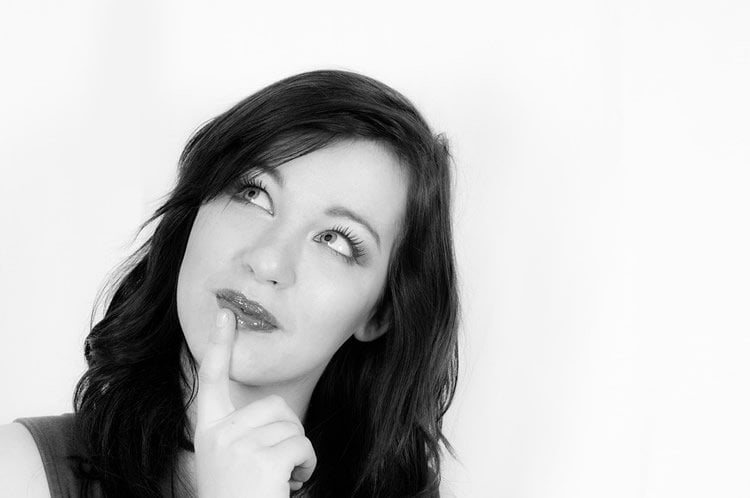Summary: Cultural stereotypes could be the reason why people are pretty good at matching names to faces, a new study reports.
Source: APA.
People can match names to faces of strangers with surprising accuracy. Computers can also be programmed to match names and faces, study says.
If your name is Fred, do you look like a Fred? You might — and others might think so, too. New research published by the American Psychological Association has found that people appear to be better than chance at correctly matching people’s names to their faces, and it may have something to do with cultural stereotypes we attach to names.
In the study, published in the Journal of Personality and Social Psychology, lead author Yonat Zwebner, a PhD candidate at The Hebrew University of Jerusalem at the time of the research, and colleagues conducted a series of experiments involving hundreds of participants in Israel and France. In each experiment, participants were shown a photograph and asked to select the given name that corresponded to the face from a list of four or five names. In every experiment, the participants were significantly better (25 to 40 percent accurate) at matching the name to the face than random chance (20 or 25 percent accurate depending on the experiment) even when ethnicity, age and other socioeconomic variables were controlled for.
The researchers theorize the effect may be, in part, due to cultural stereotypes associated with names as they found the effect to be culture-specific. In one experiment conducted with students in both France and Israel, participants were given a mix of French and Israeli faces and names. The French students were better than random chance at matching only French names and faces and Israeli students were better at matching only Hebrew names and Israeli faces.
In another experiment, the researchers trained a computer, using a learning algorithm, to match names to faces. In this experiment, which included over 94,000 facial images, the computer was also significantly more likely (54 to 64 percent accuracy) to be successful than random chance (50 percent accuracy).
This manifestation of the name in a face might be due to people subconsciously altering their appearance to conform to cultural norms and cues associated with their names, according to Zwebner.

“We are familiar with such a process from other stereotypes, like ethnicity and gender where sometimes the stereotypical expectations of others affect who we become,” said Zwebner. “Prior research has shown there are cultural stereotypes attached to names, including how someone should look. For instance, people are more likely to imagine a person named Bob to have a rounder face than a person named Tim. We believe these stereotypes can, over time, affect people’s facial appearance.”
This was supported by findings of one experiment showing that areas of the face that can be controlled by the individual, such as hairstyle, were sufficient to produce the effect.
“Together, these findings suggest that facial appearance represents social expectations of how a person with a particular name should look. In this way, a social tag may influence one’s facial appearance,” said co-author Ruth Mayo, PhD, also from The Hebrew University of Jerusalem. “We are subject to social structuring from the minute we are born, not only by gender, ethnicity and socioeconomic status, but by the simple choice others make in giving us our name.”
Source: Jim Sliwa – APA
Image Source: NeuroscienceNews.com image is in the public domain.
Original Research: Full open access research for “We Look Like Our Names: The Manifestation of Name Stereotypes in Facial Appearance” by Yonat Zwebner MBA, Anne-Laure Sellier, PhD, Jacob Goldenberg, PhD, Nir Rosenfeld, MSc, and Ruth Mayo, PhD in Journal of Personality and Social Psychology. Published online February 26 2017 doi:10.1037/pspa0000076.supp
[cbtabs][cbtab title=”MLA”]APA “Do You Look Like Your Name?.” NeuroscienceNews. NeuroscienceNews, 27 February 2017.
<https://neurosciencenews.com/name-face-match-6162/>.[/cbtab][cbtab title=”APA”]APA (2017, February 27). Do You Look Like Your Name?. NeuroscienceNew. Retrieved February 27, 2017 from https://neurosciencenews.com/name-face-match-6162/[/cbtab][cbtab title=”Chicago”]APA “Do You Look Like Your Name?.” https://neurosciencenews.com/name-face-match-6162/ (accessed February 27, 2017).[/cbtab][/cbtabs]
Abstract
We Look Like Our Names: The Manifestation of Name Stereotypes in Facial Appearance
Research demonstrates that facial appearance affects social perceptions. The current research investigates the reverse possibility: Can social perceptions influence facial appearance? We examine a social tag that is associated with us early in life— our given name. The hypothesis is that name stereotypes can be manifested in facial appearance, producing a face-name matching effect, whereby both a social perceiver and a computer are able to accurately match a person’s name to his or her face. In 8 studies we demonstrate the existence of this effect, as participants examining an unfamiliar face accurately select the person’s true name from a list of several names, significantly above chance level. We replicate the effect in 2 countries and find that it extends beyond the limits of socioeconomic cues. We also find the effect using a computer-based paradigm and 94,000 faces. In our exploration of the underlying mechanism, we show that existing name stereotypes produce the effect, as its occurrence is culture-dependent. A self-fulfilling prophecy seems to be at work, as initial evidence shows that facial appearance regions that are controlled by the individual (e.g., hairstyle) are sufficient to produce the effect, and socially using one’s given name is necessary to generate the effect. Together, these studies suggest that facial appearance represents social expectations of how a person with a specific name should look. In this way a social tag may influence one’s facial appearance.
“We Look Like Our Names: The Manifestation of Name Stereotypes in Facial Appearance” by Yonat Zwebner MBA, Anne-Laure Sellier, PhD, Jacob Goldenberg, PhD, Nir Rosenfeld, MSc, and Ruth Mayo, PhD in Journal of Personality and Social Psychology. Published online February 26 2017 doi:10.1037/pspa0000076.supp






